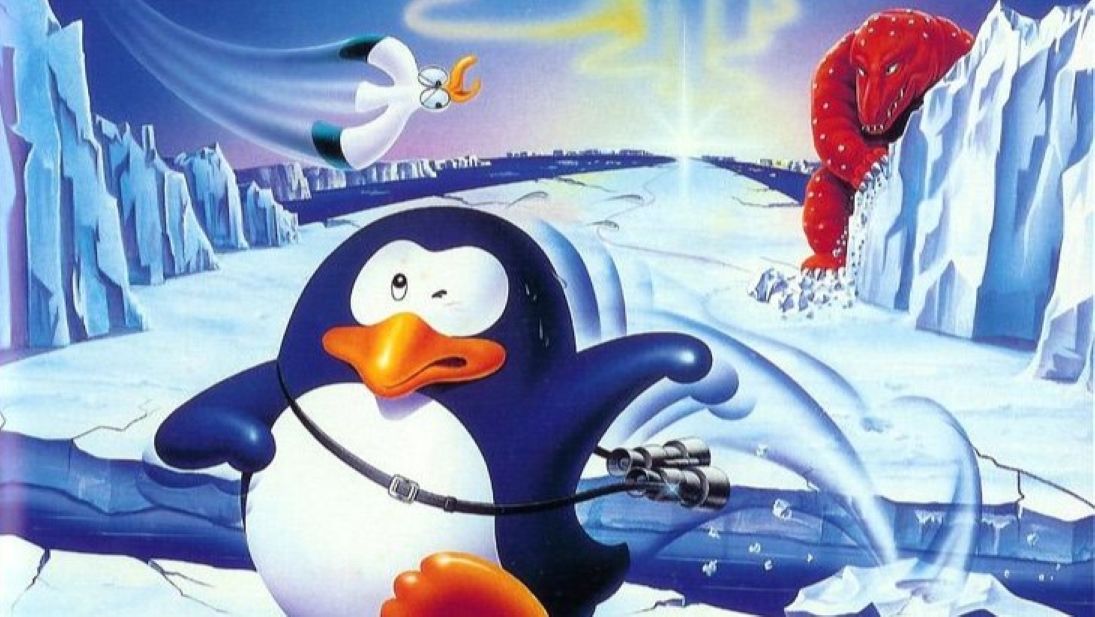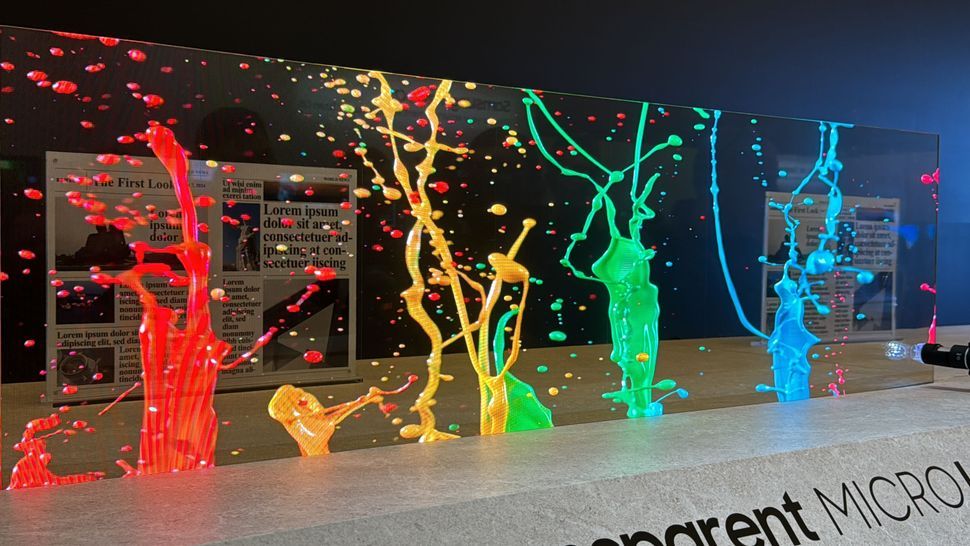Pasokon Retrois our regular look back at the early years of Japanese PC gaming, encompassing everything from specialist ’80s computers to the happy days of Windows XP.
Yume Tairiku Adventure, aka Penguin Adventure, is best known, when it’s thought of at all, for being the first game Hideo Kojima worked on (briefly, in the planning stages, in an uncredited capacity). In 2024 it’s less of a game and more a piece of trivia with a mildly interesting link to a famous face.
We miss out on all the fun if we only think of it that way. Penguin Adventure is a fantastic retro game, a speedy dash across frozen wastelands, lush forests, and even a quick trip to outer space, with just enough time to see Santa along the way.
It doesn’t take long to pick up thanks to simple controls and a straightforward premise: hit the spacebar to jump, use the arrow keys to move to the sides as well as speed up/slow down our heroic penguin avatar, imaginatively named—wait for it—Penguin. There’s also pressing the M key to, um, fire a gun (once bought). The general aim is to reach the end of each stage before the timer runs out, and that means leaping over obstacles while deftly moving out of the way of incoming enemies and avoiding as many speed-sapping holes as possible. Oh, and catching as many fish as possible along the way to spend in the game’s semi-hidden shops (or gamble away in the game’s slot machines) is a good idea too.
It never takes me too long to get back into the groove when I come back to Penguin Adventure, and that means I have the pleasure of spending more time appreciating the raw graphical ambition and effort on display than I do wondering which keyboard keys I’m supposed to hit. This game has some brilliantly detailed graphics—OK, brilliantly detailed for 1986—and the well animated scenery zooms by smoothly at high speed. Penguin himself is a mischievously expressive little guy considering the limited animation possible on the PCs of the time.
I know it might sound a little hard to believe that anything you can see here ever impressed anybody, so let me try and set the scene for you: this was happening on hardware so basic even scrolling of the plain old left to right variety wasn’t to be taken for granted, especially on PCs that weren’t built to rapidly refresh their displays.
Just one year before Penguin Adventure, Super Mario Bros. was the big new console hit, and at this point in time there was a very good chance your favourite computer game had to be loaded from a cassette. John Carmack’s smooth scrolling technique for PC platformers was still years away.
So it’s (relatively speaking) a technical marvel, but the great thing is Penguin Adventure wants to amuse, as well as astound. This game always makes time for a bit of fun. A post-stage celebration might see Penguin think of classic Konami Moai heads, and to help him get there I probably bought a propeller hat or knightly helmet from a fisherman who’s currently relaxing down any one of several random holes with his fish-accepting slot machine for some unfathomable reason. If I’m not shopping or running across the ice I might be in orbit around the earth, catching fish while dodging meteorites in a quick bonus game, this old MSX cart free from all the expectations that make modern games so much more realistic, believable, and dare I say it—a bit too predictable at times.
Everyone can see Sad Marine Guy dusting himself off for one last fight coming a mile off. Nobody has SPACE PENGUINS on their gaming bingo card.
But it’s still serious where it counts. Penguin Adventure is packed with the sort of fine detail that even games made years later could only dream of. Like shadows: every moving object, including Penguin, casts a shadow. A basic blob of one, sure, but it’s enough to make it easy for me to gauge exactly where something is in this fast moving 3D space even when they’re bouncing all over the screen. That means that not only can I trust what I’m seeing, but when I do get hit, there’s never any doubt who’s to blame—me. That solid white floor under Penguin’s flippers isn’t a plain block of pixels, it’s a sheet of ice, and I can feel this because not only does the scenery shift to the side as Penguin rushes on, but I have to subtly fight against the long curves if I want to have any hope of stopping him drifting out towards the edges and into danger.
The giant bosses that pop up every few stages are perhaps the perfect fusion of the game’s playfulness and polish. Of course a penguin isn’t going to win a straight fight against an enormous path-blocking dragon-ish creature, so why try? Why not hammer down the pegs around it instead, the ground visibly cracking a little further with each blow, until it falls into the ground in a boggle-eyed but oh-so-satisfying crash?
Image 1 of 6
It’s not the easiest thing to do, especially when these monsters keep throwing fireballs my way as I try to plunge them into the depths, but it’s well worth the effort. Everything’s worth the effort here, every brave move and curious prod at the scenery generously rewarded. Penguin Adventure’s the sort of game I could spend a whole week with and honestly find something new to appreciate every day, and know there’d still be even more secrets and bonuses hiding away thereafter.
Unfortunately I only get two lives to discover it all in, although numerous secret warps make the game’s 24 stages more manageable—and offer a unique little challenge of their own too. Penguin Adventure shows on the between-level stage map exactly where I did or didn’t use warps, so my shame—or, depending on how you look at it, skill—is clear for all to see. It’s just another small ingenious touch in a game humbly full of them. Whether I want to definitively prove I can clear every single stage in one go, or I want to show off my in-depth knowledge of the game’s esoteric hidden warps, Penguin has got my back.
Did the unstoppable gaming visionary Hideo Kojima help with any of that? Yes, a bit. And I’m glad he did. But however much time he poured into the project or otherwise, he’ll never be Penguin Adventure’s most interesting feature.


